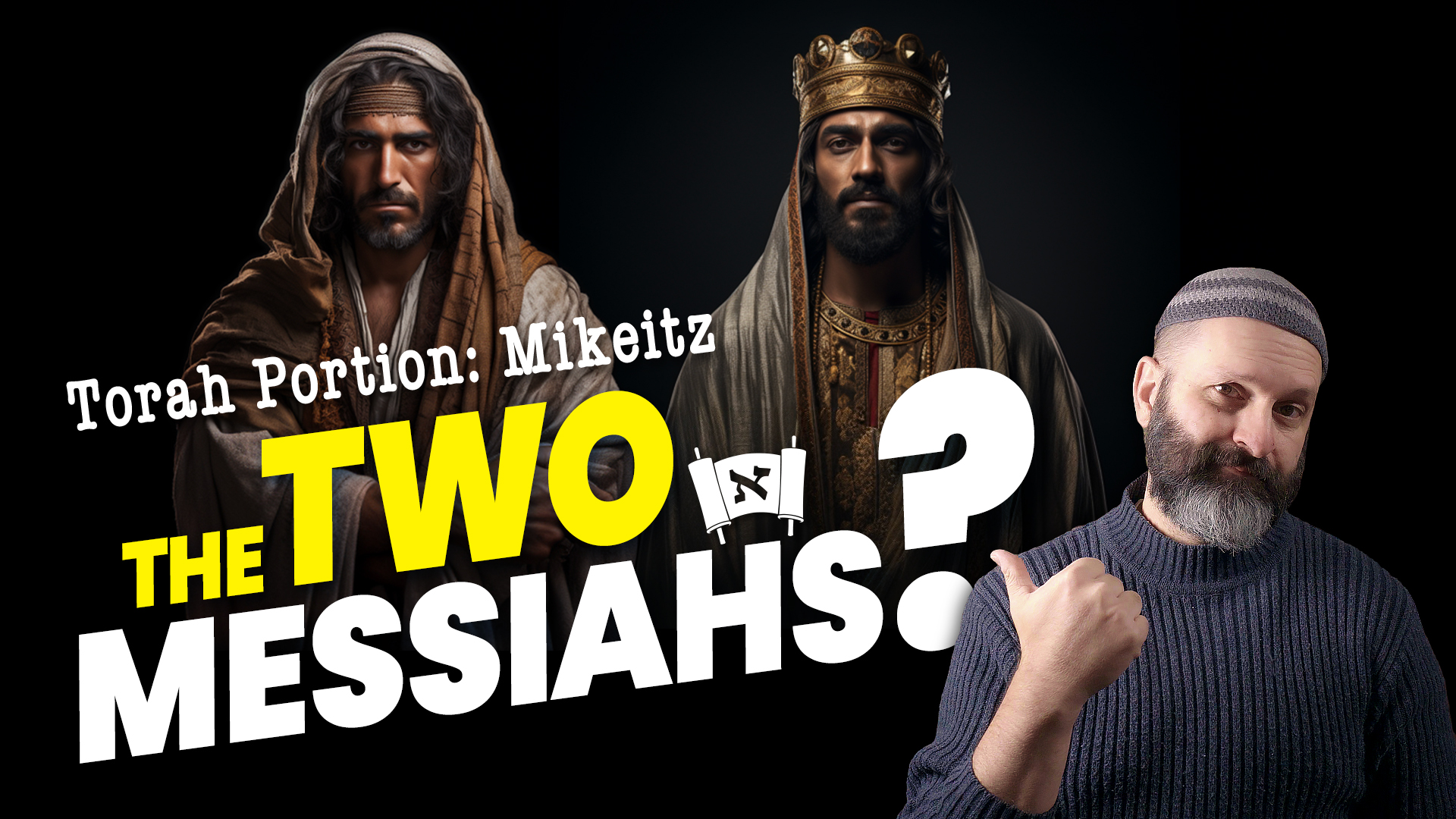Messiah Unmasked
Series:

Parashat Mikeitz (Genesis 41:1-44:17)
At the end of last week’s parashah, we were left with a cliff hanger. Pharaoh’s royal baker was executed and his chief cupbearer was restored to office just as Joseph had told them, based on their respective dreams. The very last verse, however, left off by telling us, “Yet the chief cupbearer did not remember Joseph, but forgot him” (Genesis 40:23). Although the royal cupbearer was restored to his position, Joseph was forgotten and left in prison.
However, our parashah picks up two years later when God orchestrated that Pharaoh have two disturbing dreams. They would trouble Pharaoh enough for him to make a ruckus among his royal court searching for an interpreter for them. Finally, the cupbearer remembered Joseph and brought him before Pharaoh to interpret his dreams. The result was that Pharaoh installed Joseph as the most powerful man in Egypt, second only to himself:
And Pharaoh said to Joseph, “See, I have set you over all the land of Egypt.” Then Pharaoh took his signet ring from his hand and put it on Joseph’s hand, and clothed him in garments of fine linen and put a gold chain about his neck. And he made him ride in his second chariot. And they called out before him, “Bow the knee!” Thus he set him over all the land of Egypt. Moreover, Pharaoh said to Joseph, “I am Pharaoh, and without your consent no one shall lift up hand or foot in all the land of Egypt.” And Pharaoh called Joseph’s name Zaphenath-paneah. (Genesis 41:41–45)
This was an incredible windfall for Joseph. He had gone from rags to riches, literally overnight. God had brought him from the dungeon to the king’s palace and given him authority over the entire kingdom of Egypt.
One of the first things that Pharaoh did when he installed Joseph into his new office was to give him the keys to his second-best chariot and have his officers drive him around Egypt. When Joseph was riding in Pharaoh’s chariot, Pharaoh’s officers would call out before Joseph something that is not quite clear. They would cry out, “Avrech!” (Genesis 41:43). What does this mean? Rabbinic commentaries debate over its meaning. Rabbi Yehudah says that it refers to Joseph, “who was a father (av) in wisdom and young (rach) in years.” Rabbi Yosi ben Dormaskit disagrees and sees a connection with the word avrech to the Hebrew word for knees (birkayim), making it a command for all who hear to “bend the knee” (Sifrei Devarim 1:21).
Virtually all English translations take Rabbi Yosi’s lead and associate this word with the bending of the knee. To fully understand this, we must understand the connection between Joseph and Yeshua. Joseph is a messianic prototype, just as King David. Rabbinic commentaries discuss two messiahs that will come. The first is a messiah who will come in a similar manner as Joseph. He has the title of Mashiach ben Yoseph, or Messiah Son of Joseph, because he is destined to suffer like Joseph. The second will be a conquering king, appropriately known as Mashiach ben David, or Messiah Son of David.
We know that, in his first appearance, Yeshua of Nazareth fulfilled the role of this suffering servant. However, one day he will return to reveal himself as the one who will subdue all of the enemies of God and restore the Kingdom to Israel. He will return as Mashiach ben David.
This passage in our Torah portion is the thread that ties these two messianic roles together. As Joseph is paraded throughout the land of Egypt, the cry went forth, “Avrech!”—“Bow the knee!” However, the knee was bent for the suffering servant, rather than the conquering king. Maybe this is the proleptic picture that Paul had in mind when he wrote to the congregation at Philippi:
Therefore God has highly exalted him and bestowed on him the name that is above every name, so that at the name of Jesus every knee should bow, in heaven and on earth and under the earth, and every tongue confess that Jesus Christ is Lord, to the glory of God the Father. (Philippians 9–11)
The name Zaphenath-paneah has a connection to this concept also. Rabbi Johanan said the name implies, “He reveals things that are hidden and easily declares them” (Genesis Rabbah 90:4).
Maybe Joseph was given the name Zaphenath-paneah to denote that he was hidden and then revealed. And just like Joseph, Yeshua has been hidden from the majority of his brothers and sisters for nearly two thousand years. However, one day the cry of “Avrech!” will be uttered once again, and every knee will bow and every tongue confess that Yeshua is both Messiah of Israel and Master over all. He will take off the mask he has been wearing and will no longer be seen as simply the Messiah of the Gentiles but the Messiah of Israel also. He who was hidden will be revealed, and his brothers will look upon him with astonishment and love as if they had seen their brother come back from the dead. It will be a glorious reunion.








